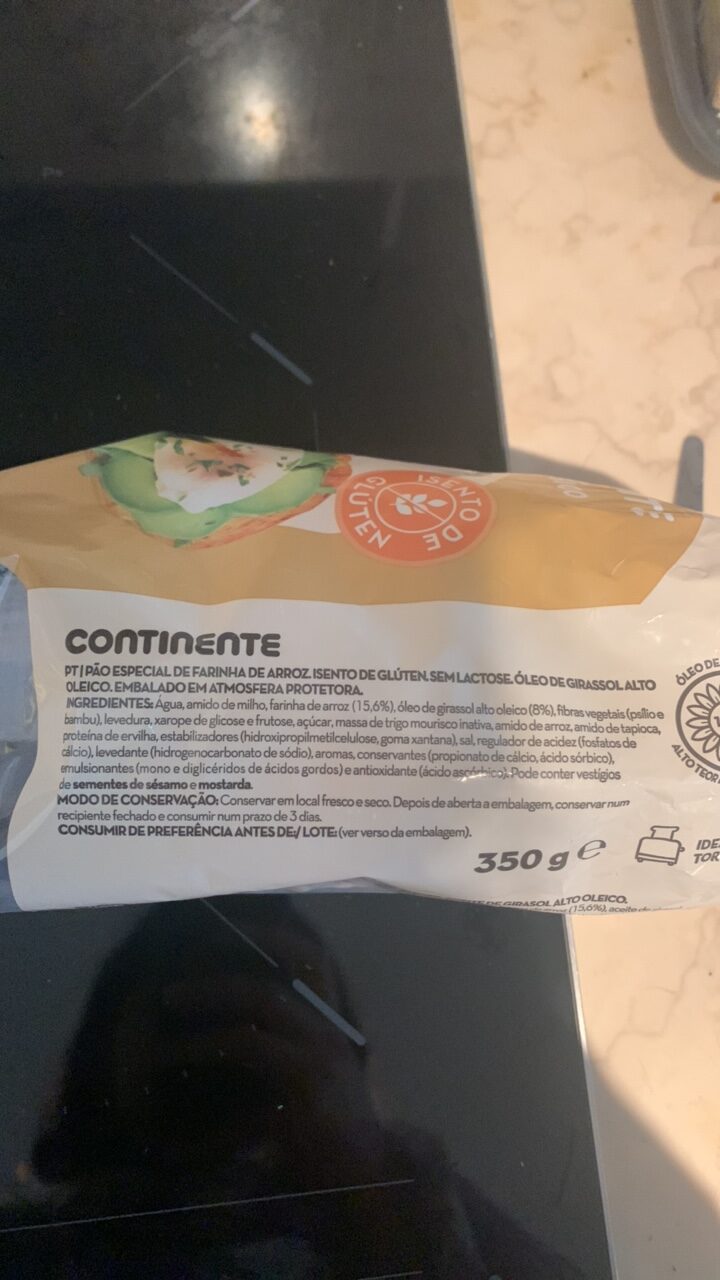
Barcode: 5600954502589
pti pão especial de farinha de arroz
HALAL
📝 Reason: The product is considered Halal as none of the ingredients are Haram. However, some ingredients like stabilizers, acidity regulators, leavening agents, flavors, preservatives, emulsifiers, and antioxidants are marked as Doubtful due to lack of specific details about their origins. Islamic sources emphasize the importance of consuming Halal and avoiding doubtful matters (Quran 5:3).
🏷️ Category: Bread
📄 Certificates: Isento De Glúten, Sem Lactose, Alto Teor, 350 G, Vegetarisch, Vegan
Ingredients:
Details
Understanding the Halal Status of PTI Pão Especial de Farinha de Arroz
In today’s increasingly diverse dietary landscape, understanding the Halal status of products is crucial for many conscientious consumers. PTI Pão Especial de Farinha de Arroz is a bread made primarily from rice flour and several other ingredients that cater not only to gluten-free diets but also to those seeking Halal options. In this article, we delve deep into the ingredients of PTI Pão Especial de Farinha de Arroz and provide clarity on whether this product truly meets Halal standards.
What Makes PTI Pão Especial de Farinha de Arroz Halal?
The product has been certified as Halal, which means that it does not contain any Haram (forbidden) ingredients. Each component of the bread undergoes scrutiny to ensure it meets Halal requirements. The importance of Halal consumption is emphasized in Islamic teachings, and Quran 5:3 highlights avoiding doubtful matters in dietary choices.
Ingredient Breakdown
- Água (Water): Universally considered Halal.
- Amido de milho (Corn Starch): Plant-based and Halal.
- Farinha de arroz (Rice Flour): Plant-based and Halal.
- Óleo de girassol alto oleico (High Oleic Sunflower Oil): Plant-based and Halal.
- Fibras vegetais (Vegetable Fibers): Plant-based and Halal.
- Levedura (Yeast): Generally considered Halal.
- Xarope de glicose (Glucose Syrup): Plant-based and Halal.
- Frutose (Fructose): Plant-based and Halal.
- Açúcar (Sugar): Plant-based and Halal.
- Massa de trigo mourisco inativa (Inactive Buckwheat Dough): Plant-based and Halal.
- Amido de arroz (Rice Starch): Plant-based and Halal.
- Amido de tapioca (Tapioca Starch): Plant-based and Halal.
- Proteína de ervilha (Pea Protein): Plant-based and Halal.
- Estabilizadores (Stabilizers): Status is doubtful due to origin uncertainty.
- Sal (Salt): Mineral-based and Halal.
- Regulador de acidez (Acidity Regulator): Status is doubtful due to origin uncertainty.
- Levedante (Leavening Agent): Status is doubtful due to origin uncertainty.
- Aromas (Flavors): Status is doubtful due to origin uncertainty.
- Conservantes (Preservatives): Status is doubtful due to origin uncertainty.
- Emulsionantes (Emulsifiers): Status is doubtful due to origin uncertainty.
- Antioxidante (Antioxidant): Status is doubtful due to origin uncertainty.
- Sementes de sésamo (Sesame Seeds): Plant-based and Halal.
- Mostarda (Mustard): Plant-based and Halal.
Understanding Doubtful Ingredients
While the majority of the ingredients in PTI Pão Especial de Farinha de Arroz are confirmed Halal, certain components such as stabilizers, acidity regulators, leavening agents, flavors, preservatives, emulsifiers, and antioxidants are marked as doubtful. This lack of clarity arises because these ingredients can be sourced from various origins, some of which may not align with Halal standards. Therefore, consumers are advised to be cautious when it comes to these components. Islamic teachings suggest that it is best to avoid the doubtful, aligning with the principle of consuming Halal.
Certifications
In addition to its Halal certification, PTI Pão Especial de Farinha de Arroz boasts several other certifications, including being Isento De Glúten (Gluten-Free), Sem Lactose (Lactose-Free), and labeled as Vegetarisch (Vegetarian) and Vegan. These certifications enhance the product’s appeal, particularly among those with dietary restrictions or preferences.
Conclusion
In conclusion, PTI Pão Especial de Farinha de Arroz stands as a suitable option for those seeking Halal dietary choices. With most of its ingredients verified as Halal, it remains crucial to remain informed about the few components that fall into the doubtful category. Consumers are encouraged to refer to Halal authorities and the product’s labeling for the most accurate information, ensuring their choices align with their values.
